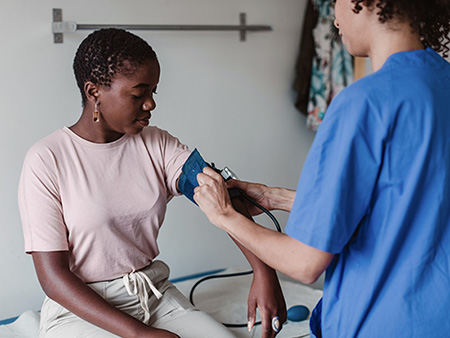On a global scale, hypertension has entrenched itself as the third major risk factor for cardiovascular disease, trailing only behind poor diet and smoking. The repercussions of are severe, significantly increasing the risk of heart disease, stroke, and renal failure. In recent decades, a disturbing trend has emerged – the escalation as a serious public health issue among young adults (18-24 years) and middle-aged individuals (25-44 years) worldwide.
Recent data indicates that hypertension is now one of the leading causes of death and disability globally, contributing to a staggering 9.4 million fatalities annually. In the Western world, it stands as a primary contributor to mortality, being implicated in nearly 7.6 million deaths worldwide in 2001 alone.
The insidious nature of the condition, often dubbed the “silent killer,” lies in its lack of severe symptoms coupled with its potential for fatal consequences. Dr. Gregory Ede emphasizes the critical importance of hypertension screening and early treatment. “Hypertension may not manifest obvious symptoms, but its effects on the cardiovascular system can be devastating. Early detection and intervention are paramount to preventing heart disease, strokes, and renal complications,” says Dr. Ede.
Adding to the complexity of the issue is the prevalence of prehypertension, a precursor to full-blown hypertension, particularly common among young people. Dr. Ede underscores the significance of addressing it early on, as it serves as a major antecedent for developing hypertension and cardiovascular disease later in life. “Lifestyle adjustments, when implemented early, can mitigate the progression from prehypertension to hypertension. However, there is a concerning lack of screening for these conditions among young individuals,” notes Dr. Ede.
Despite the potential consequences, there is a notable deficiency in hypertension screening, especially in the younger demographic. Doctors are less likely to prescribe antihypertensive drugs to young adults with hypertension compared to their older counterparts. Dr. Ede emphasizes the need for increased awareness and proactive healthcare measures, stating, “Early intervention is key, and healthcare providers should be vigilant in screening and addressing this condition, even in younger patients.”
The ramifications of hypertension extend beyond immediate health concerns. On a global scale, it ranks third among the six major risk factors for cardiovascular disease. The risk of heart disease, stroke, and renal failure is all significantly increased by the condition. A total of 9.4 million fatalities per year are attributed to hypertension worldwide.
Despite its lack of severe symptoms, the potentially fatal effects of this condition make it a silent yet pervasive health threat. Due to its silent nature, it is often not diagnosed until complications arise. Early screening, therefore, becomes crucial in identifying individuals at risk and implementing preventive measures.
To tackle this silent epidemic, it is imperative that governments and other organizations take a proactive role. Public health initiatives must be established to increase awareness about the risks of hypertension and the importance of regular health check-ups, particularly targeting young adults. Educational programs in schools and colleges should emphasize the significance of a healthy lifestyle in preventing this condition.
Governments should also invest in accessible and affordable healthcare services, ensuring that screening is readily available to individuals of all ages. Subsidized or free health check-ups and consultations can encourage more young adults to monitor their blood pressure regularly.
Furthermore, research funding should be allocated to studying hypertension in the younger population, aiming to understand the specific factors contributing to its rise and developing targeted interventions. Collaboration between healthcare providers, governmental agencies, and non-profit organizations is essential to create a comprehensive approach to combatting this condition on a global scale.
As the global prevalence of hypertension continues to rise, Dr. Gregory Ede’s call for early detection and lifestyle adjustments serves as a beacon of hope. By raising awareness about the dangers, particularly among the young population, and emphasizing the importance of proactive healthcare, combined efforts can pave the way for a healthier future for generations to come.



